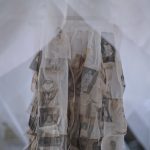Deadline:
The Tabb Center will accept applications for our public humanities fellowship in the fall of 2024, with an application date of October 22, 2024. One fellow will be selected.

This one-year fellowship includes a stipend of up to $20,000, with an additional $5,000 available for programming or related expenses, and may potentially be renewed for a second year.
Public Humanities Fellows are non-institutionally affiliated organizers, artists, cultural workers, public historians, and knowledge-creators who research with and creatively interpret materials from the Sheridan Libraries’ rare book, manuscript, and archival collections. The fellow will create new perspectives on the archival and library collections, identifying and highlighting new connections between them and presenting them to the university community and broader Baltimore public in socially significant ways.
Fellows are expected to produce a deliverable based on research conducted within our collections. This could include interpreting materials through podcasts, audio tours, soundscapes, or oral histories, site-specific installations, virtual reality projects, interactive performances, community workshops, public talks, concerts, or other events.
Candidates will submit a timeline and budget as part of their application, including a start and end date. This fellowship may be, for example, a full-time 3-month fellowship, a part-time 12-month fellowship, or any other permutation. The spring semester (Feb to May) is an ideal time to access special collections materials, though these materials are available throughout the year.
Timeline:
- October 22, 2024: Applications due
- November 5, 2024: Fellow selected by committee
- No later than November 20, 2024: Orientation at JHU Homewood campus
- Fellows will begin their fellowship at an agreed-upon date
- September 15, 2025: Fellow deliverable(s) must be completed
2024/25 Focus on Audio:
- While not required, we are particularly interested in and welcome proposals that include an audio component, such as podcasts, audio tours, soundscapes, or oral histories. Prior experience with audio is not required. Training and support will be available as needed.
Stipend and Copyright:
- The fellowship offers an hourly wage of $35 per hour up to a total of $20,000 in a 12-month period. (For example, a full-time 3-month fellowship, a part-time 12-month fellowship, or any other permutation.) Candidates will submit a timeline and budget as part of their application. The stipend will be paid in monthly installments over duration the of the project. This fellowship does not offer travel compensation, health insurance, or housing subsidy.
- The Fellow owns all right, title, and interest in the work, including all copyright rights. The Fellow must credit the Winston Tabb Special Collections Research Center on the work itself as well as all future outreach materials related to the work, including websites, printed materials, videos, etc.
Requirements:
- Fellows should live or work in Baltimore.
- This fellowship is intended for independent artists, curators, and organizers. It is not open to faculty, students, or current JHU fellows.
- The selected fellows should be willing to work with a videographer who will create a video that documents their research and experience to share with a public audience via the Tabb Center website.
- Fellows are expected to provide at least one presentation about their project to local audiences during the course of their fellowship.
Eligible Repositories:
- University Archives
- Special Collections
- The Institute for the History of Medicine in East Baltimore
- The George Peabody Library
- The John Work Garrett Library
Questions?
- For questions about the Public Humanities Fellowship, contact tabbcenter@jhu.edu
For questions about locating JHU collections and researching at the university, reach out to our Special Collections staff at specialcollections@lists.jhu.edu

